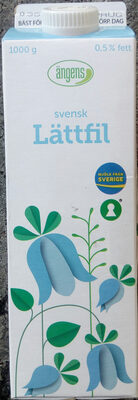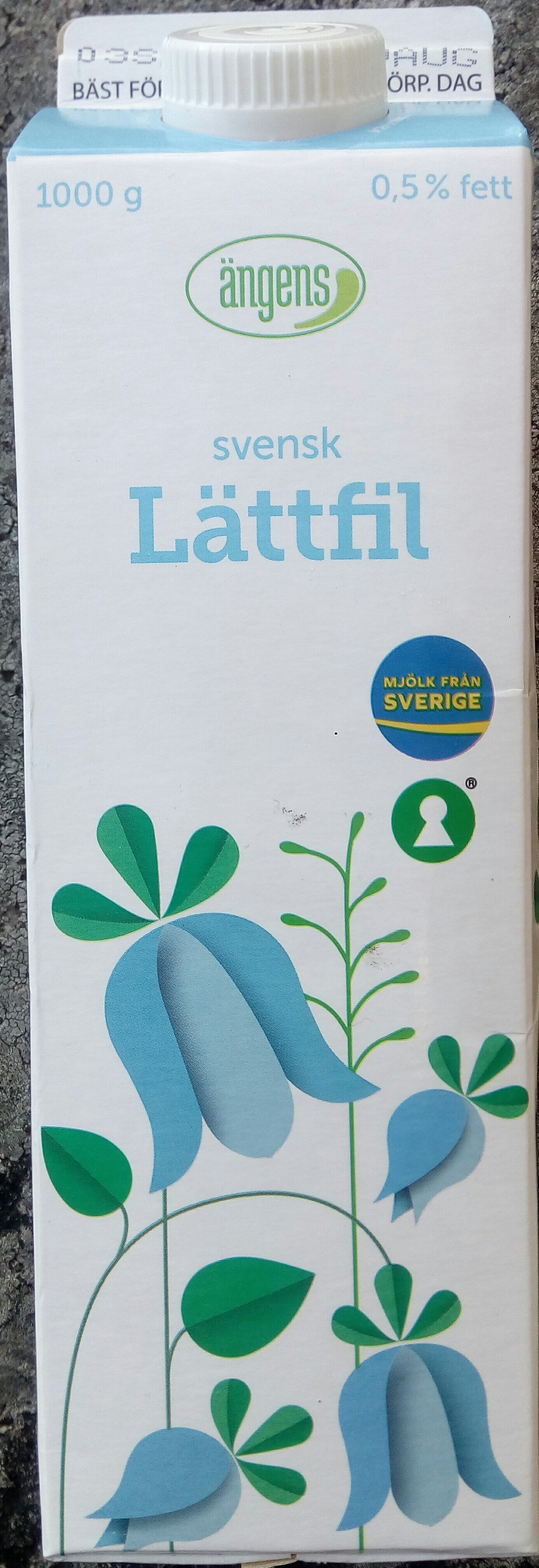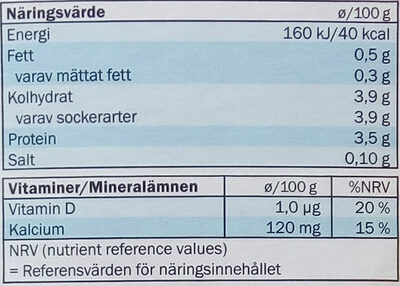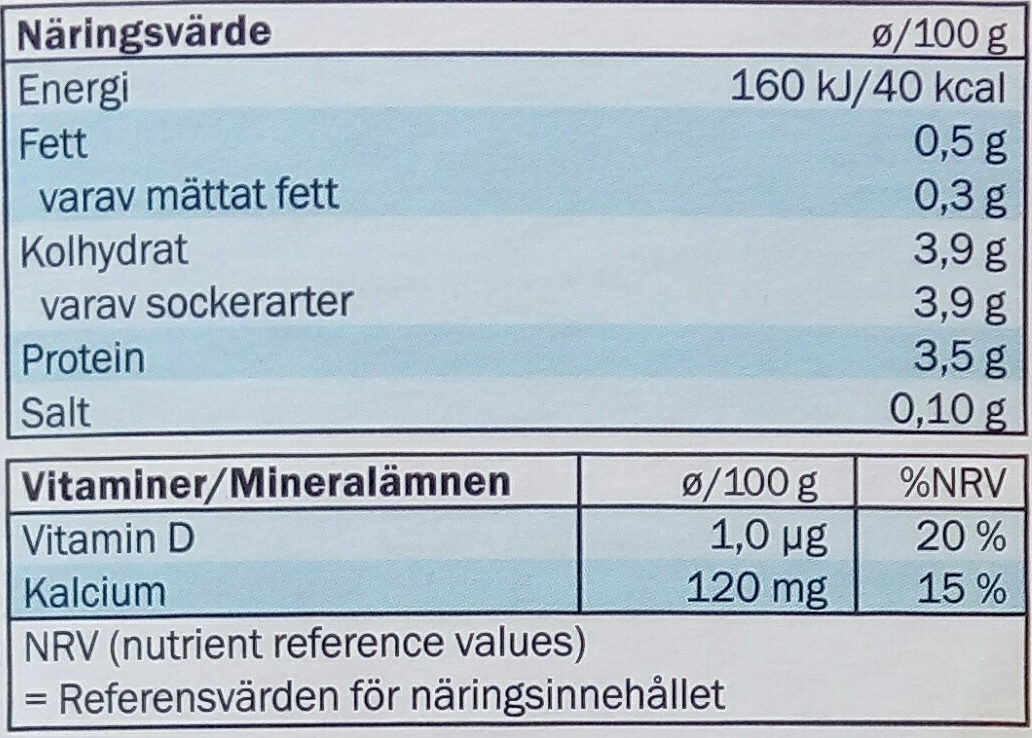Ängens svensk Lättfil - 1000 g
Barcode: 4056489065845 (EAN / EAN-13)
Quantity: 1000 g
Categories: Beverages, Dairies, Fermented foods, Fermented milk products, Dairy drinks, Fermented drinks, Fermented milk drinks, Unsweetened beverages
Labels, certifications, awards:
FSC, FSC Mix, Keyhole, sv:FSC-C081801, sv:Milk from Sweden

Origin of ingredients: Sweden
Manufacturing or processing places: Sverige
Traceability code: SE 1028 EC
Stores: Lidl
Countries where sold: Sweden
Matching with your preferences
Report a problem
Data sources
Product added on by olofolleola4
Last edit of product page on by packbot.
Product page also edited by openfoodfacts-contributors, roboto-app.












